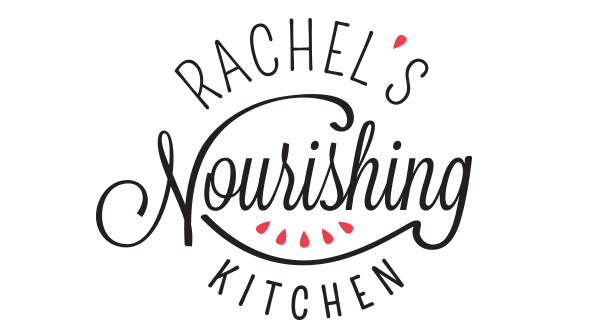If you feel less than awesome in your body at this very moment, keep reading. What I’m sharing today could literally change your life!
Today, we’re talking about a topic that is near and dear to me because of my personal healing journey to identify food sensitivities, get myself off of a chronic disease medication, and heal my body.
What I’ve learned about the digestive system and its role in keeping me healthy has transformed my life. I have dealt with some form of sickness for most of my life, but addressing the underlying system and root causes has helped me feel better.
For the longest time, I felt like what I was dealing with was “normal” because it was all I’d ever known. (Doesn’t everyone get ear and sinus infections and bronchitis and reflux??). On what seems like a daily basis, I either hear stories about, talk to people dealing with or read about frustrating struggles with health issues that SEEM to be “normal” because they are common.
From indigestion, migraines, asthma, acne, irritable bowel syndrome and heartburn to depression, anxiety, diabetes, and constipation, we’ve grown to think of these things as normal because so many people we know deal with them.
So what’s the secret?
Good health begins in the gut, the digestive system.
Did you know that over 50% of our immune system lies in and around our digestive tract? And that’s being conservative. Some experts report that as much as 70-80% of our immune cells are in and around our digestive system!
That means EVERYTHING we eat and drink goes through that system and affects it. Everything.
There is a strong link between what we eat and drink and how we feel.
I’m excited to share some potentially life-changing information with you in today’s post. I had the privilege of learning from one of the best and brightest in the field of nutrition and gut health, Dr. Chris D’Adamo from the University of Maryland Center for Integrative Medicine.
Check out his top 10 tips to optimize YOUR gut health to start feeling better today!
1) Acknowledge and believe that you don’t have to live with these symptoms just because you always have!
The body has a remarkable ability to be transformed and heal when we give it what it needs and take away what is hurting it.
Consider something like depression. It’s a complex condition without a sole cause or treatment. BUT, when you learn that over 90% of our “happiness hormone” (serotonin) production occurs in the GUT, it makes sense to look at healing the gut as a way to boost our mood and feel better. Aligning with functional medicine doctors can help you determine the true root cause of your condition, not matter what it is, and even it seems to have no connection to your digestive system.
2) See a gastroenterologist to rule out any serious gastrointestinal disorders.
I’m talking about Celiac disease, Crohn’s disease, ulcers, diverticulosis, infections, ulcerative colitis, gallstones, and colorectal cancer, among others. In case you were not already aware, gastroenterologists are doctors who investigate, diagnose, treat and prevent all gastrointestinal (stomach and intestines) and hepatological (liver, gallbladder, biliary tree and pancreas) diseases. Gastroenterologists can be found all over the world, so whether you are looking for a gastroenterologist in castle hill or a doctor closer to home, do not be afraid to do some research online to track down a specialist in your area. Above all, speaking to a few different doctors can help you to get a second opinion.
Consequently, if you’re looking for a gastroenterologist who has been recommended to me by Dr. D’Adamo, contact Dr. Jim Novick at GBMC in Towson. If you want to find someone near you, search for a provider at the Institute for Functional Medicine’s website here.
3) Try an elimination diet for at least 2 weeks.
Two weeks is NOT the same as forever. I promise.
Think of going through an elimination diet as “removing the tacks” you’re sitting on that are causing you pain/discomfort/less than awesome health. The ultimate goal is to remove as few foods as possible while optimizing your health.
Suppressing symptoms with medication is just like sitting on a sharp tack and holding an ice pack on the spot to numb it rather than removing the tack completely.
Sometimes we are eating foods that are literally making us sick and causing us to stay there, no matter how much of the good stuff we add in. For me, those foods are dairy and gluten (the two most common allergenic foods).
Once I removed them from my diet, everything from congestion to sinus and ear infections and acid reflux went away.
Check out these AWESOME resources about how to do an elimination diet on the Institute for Functional Medicine’s website. Try it. These practitioners restore hope to health care.
4) Reduce or (ideally) eliminate artificial sweeteners (including Splenda).
Aspartame, found in Diet foods and drinks, and also known as Equal and Nutrasweet damages the healthy balance of bacteria in our digestive system that keeps us well.
Sucralose, the sugar in Splenda, has been associated with weight gain and potential involvement in irritable bowel disease. Sugar alcohols (anything ending in “-ol” like malitol) can have laxative effects and disrupt healthy gut function.
If you or someone you know is trying to get off of artificial sweeteners, watch the free documentary Sweet Misery. In the meantime, your best bet for a real sweetener (in moderation) is raw honey because it contains prebiotics and probiotics.
5) Wean off of acid-blocking medications (under doctor supervision).
I’m talking about the Prilosecs, Prevacids and Nexiums of the world. They have NOT been studied for long-term use and can often ultimately do more harm than good.
They are symptom “shushers.” Many of them (PPIs – proton pump inhibitors like what you see above) work by shutting off our body’s stomach acid production.We NEED stomach acid to break down our food, so we can properly absorb and use it. We don’t want to shut off this natural function of our body.
Believe it or not, many people who are diagnosed with acid reflux may actually have LOW stomach acid, which was the case for me. I rarely felt true hunger and often felt like my food was just sitting in my stomach after eating, taking its sweet time to digest.
As a result of taking acid-blocking medications for almost a decade, I messed up my body’s natural stomach acid and wasn’t breaking down proteins properly into amino acids or creating vitamin B12 (essential for energy and hundreds of other functions in the body).
Oops.
Guess what I’ve learned since then? We need the building blocks of protein to build everything from hormones and neurotransmitters to hair, skin and nails. I also learned I was deficient in stomach acid, so I had to supplement with hydrochloric acid (under the supervision of my nutritionist) to restore my digestive health.
Here’s my story of how I healed and got off of my medication….for good! Talk to your doctor before altering medication, and if your doctor is not open to doing this, find a functional medicine doctor, who will support you.
6) Heal the intestinal lining.
Bone broth and the supplement l-glutamine can both help us heal our intestinal lining.
Homemade bone broth contains amino acids that build and heal the gut lining. Here’s a link to learn about the health benefits of bone broth and how to make it yourself.
Buy yourself some bones* at your local market (MOMs Organic Market carries them), and make it yourself. Make sure they are from grass-fed, pasture-raised, humanely treated animals.
7) Choose fermented foods carefully.
They are a component of most traditional diets and naturally contain probiotics. Focus on miso, natto, kimchi, sauerkraut, kefir, and fermented yogurt.
I find Farmhouse Culture sauerkraut (lots of varieties!) and Bubbies (both pictured below) at MOMs Organic Market. Hex Ferments in Baltimore is another great place to buy lots of different fermented foods.

I used to HATE sauerkraut, but now that I know how good it is for my health, I have tried several kinds and have learned to enjoy it.
A lot of people ask about yogurt for probiotics. Most processed yogurts in the grocery store are heavily processed and contain more sugar and additives than healthy bacteria. For a review of over 100 yogurts and a ranking from best to worst, check out this guide from the Cornucopia Institute. Dannon and Yoplait are in the bottom 5!
Check out your local natural or health food store (or Whole Foods and Wegmans) for healthy fermented food options.
8) Consume prebiotic fibers to feed the bacteria in the gut.
We hear a lot about PRObiotics these days but not too much about PREbiotics. Prebiotics are fermentable fibers that FEED probiotic bacteria. Probiotics and prebiotics are both great for our gut.
We want the good guys to get the food they need to protect us and strengthen our immune system. Check out Fittty Brittty to see how probiotics and multivitamins impact our guts.
Sources of prebiotic foods include buckwheat, chicory, sunchokes (Jerusalem artichokes), burdock root, onions, garlic, asparagus, green tea, and blueberries, to name a few.
9) When it comes to probiotics, you get what you pay for.
According to the World Health Organization, probiotics are “live microorganisms that can provide benefits to human health when administered in adequate amounts, which confer a beneficial health effect on the host.”
In other words, probiotics are “good” or “healthy” bacteria because they support digestive health. Not all bacteria are bad! And since 70% of our immune system is located in and around our digestive system, it makes sense that supporting digestive health will boost our overall health.
Choose products that specify the strains of bacteria in them and that have research behind them. You also want them to be shipped on ice/cold shipped to protect the delicate, living bacteria. A few that were mentioned in the workshop were Natren, Garden of Life Raw, Theralac, and VSL #3. I’ve been using one recommended by my nutritionist called HLC MindLinx by Pharmax.
Probiotics are most important for people who have been on antibiotics, have digestive or autoimmune issues, or who will be traveling out of the country.
Keep in mind that different people respond to the same probiotics differently, so just because something works for a friend of yours doesn’t necessary mean it will work for you.
10) It’s not just WHAT you eat that matters, it’s HOW you eat, too.
Eating mindfully (slowly, chewing thoroughly, without distractions) is key to healthy digestion.
There’s a reason we call the gut “the second brain.” The brain impacts the bacteria in our gut and our gut health impacts our brain. It’s a two-way street. When we eat under stress, our body processes food differently, and we don’t get the most out of our meals. This is why it is a good idea to understand better how you can help you Inner Ecosystem, to help improve your gut so that you don’t prioritize food over your health.
Prioritize food enough to slow down and savor it when you eat.
If you’re going to take the effort to eat well in the first place, don’t you want to get as much out of that nourishing food as possible? Optimizing our gut health is key to making that happen.








